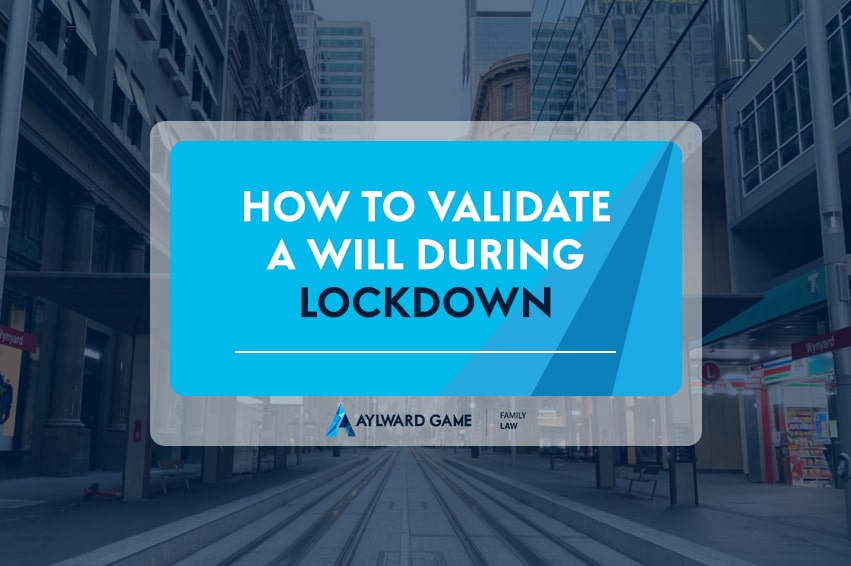How to validate a Will during and after Lockdown
The corona-virus (Covid-19) crisis means many people are considering updating their Will or drawing one up for the first time, and so many family law practitioners are seeing a surge in demand for validating a Will during the lockdown. It is clear that it will not be easy to execute validate wills during the lockdown. […]

How to validate a Will during and after Lockdown
The corona-virus (Covid-19) crisis means many people are considering updating their Will or drawing one up for the first time, and so many family law practitioners are seeing a surge in demand for validating a Will during the lockdown. It is clear that it will not be easy to execute validate wills during the lockdown.
Whilst this is a sensible step to take, strict lock-down measures mean that drawing up a valid Will is not as straight forward as simply drafting the document. A Will requires two witnesses to sign it in order to validate it. This is creating practical – but not insurmountable – challenges according to Ian Field (Acc. Spec. Fam.)
“A Will must, as a minimum, be signed by the person making it and two independent witnesses over the age of 18 who are not beneficiaries under the will of the spouses of beneficiaries, and all must be physically present in the same place when this happens,” says Field. “Given that most of us are restricted to contact with those in our household only, this creates some difficulty, assuming the people in your household are intended beneficiaries.”
Ensuring Validity
So how do you ensure your Will is valid in the face of this challenge? The field offers the following suggestions which reiterate the QLS guidelines.
“If you have a strong relationship with a neighbor and would be comfortable to enlist their assistance, you can put your Will through or over the fence and they can then sign as witnesses while you observe, and vice versa, which put you in compliance with the requirement that the witnesses and testator must be in the presence of each other when signing the document. It is important to consider distancing and the required sanitation before and after contact with neighbors or other witnesses.
“If the person drawing up the Will is in a nursing home or hospital, then using nursing staff members as witnesses might be an option,” advises Field, “although sometimes staff members at nursing homes and hospitals are reluctant to witness documents.”
The staff at Aylward Game are still available to prepare and witness signatures to wills, at both the Gympie and Brisbane offices, and we have the facilities to ensure we can do so whilst maintaining social distancing requirements.
Last resort
If none of the above is an option and there is no other way to validly sign the Will, the Supreme Court of QLD has issued a practice direction that will enable the signatures to wills executed between 1st March 2020 and 30th September 2020 to be witnessed via video conference.

This is subject to strict limits and formalities that still must be observed and is only where physical attendance is prevented by government-enforced or recommended, or self-imposed isolation or quarantine arising from the COVID 19 pandemic, and the will is prepared or witnessed by a solicitor. This is very much an option of last resort and is not a regular alternative to the witnesses being physically present when the will is signed.
These are highly unusual circumstances so we are advising our clients that any Wills written during this time should be revisited in the future when normality resumes. As with all things, consult an experienced lawyer for the right advice to suit your needs.
The Devastating Effect of COVID-19 already being Felt in Aussie Family Law Courts





SHARE THIS